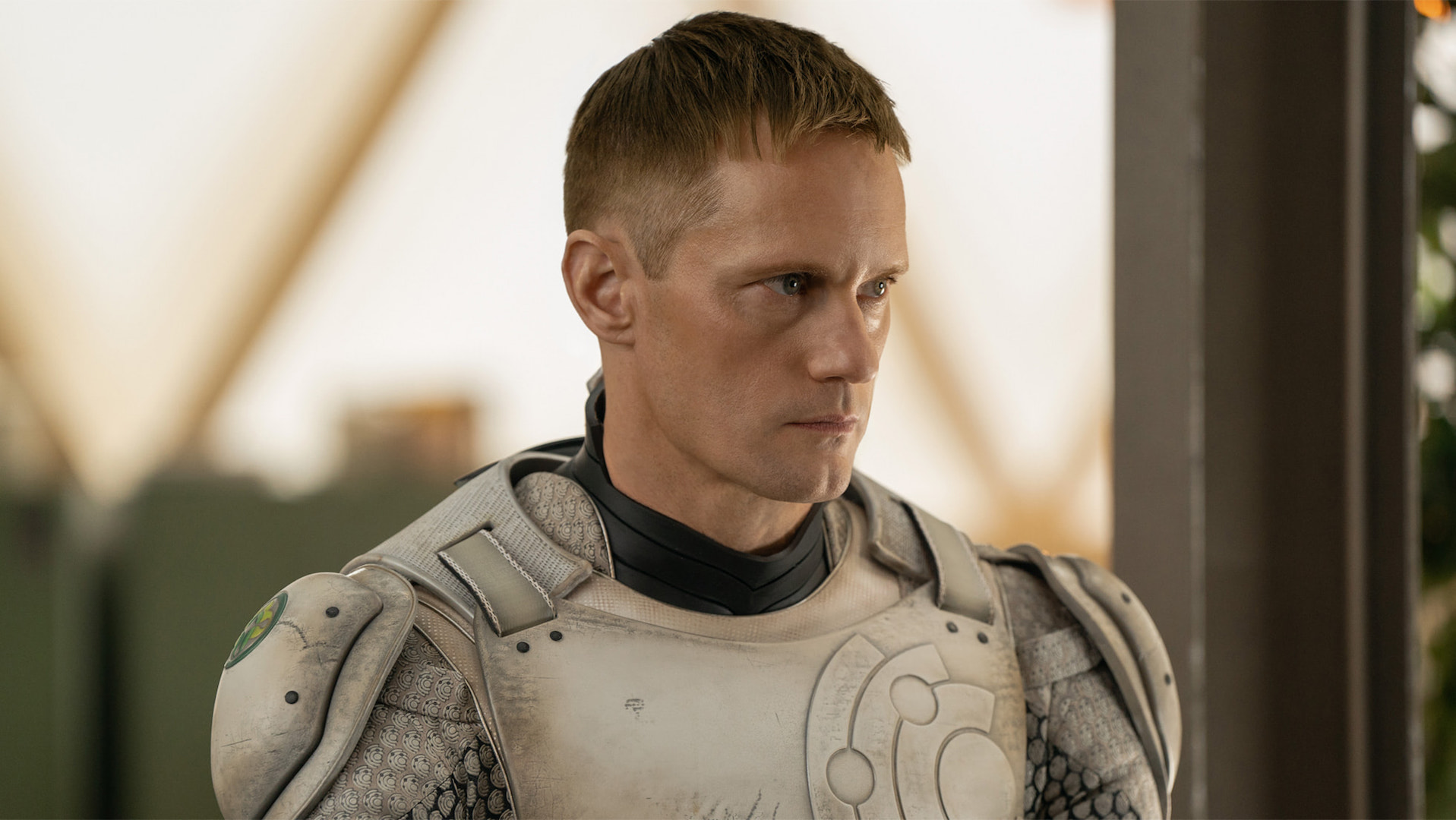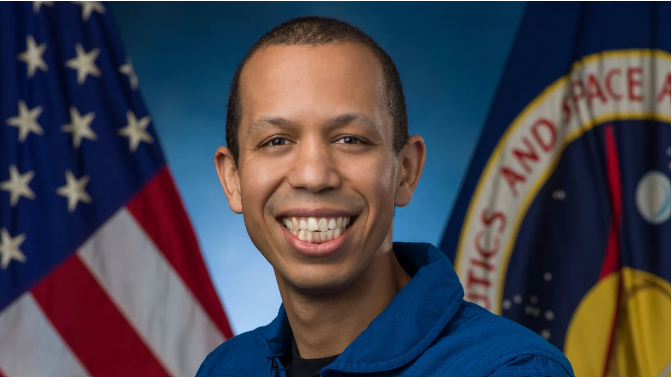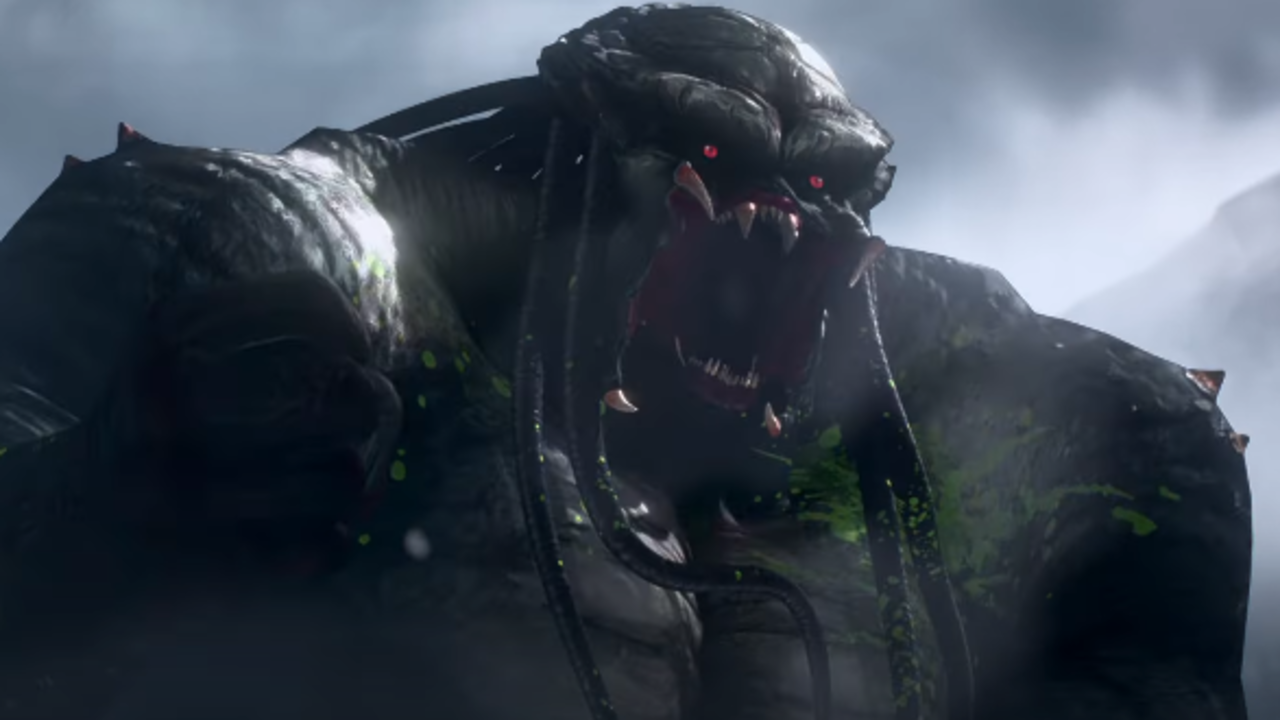'The Tomorrow War' won't win any awards, but it's a watchable action romp (review)
The influence of other sci-fi movies is obvious in Amazon Prime's new sci-fi blockbuster.
Warning: spoilers ahead!
Amazon Prime has dialed its mighty marketing machine up to 11 for its new sci-fi blockbuster starring Chris Pratt, but how does it actually rate? Even from the trailer it was apparent that "The Tomorrow War" was going to sit somewhere near equivalent popcorn presentations like "Battle Los Angeles," "Battleship" and "Independence Day" and that still rings true. And like those movies, this one also contains some nice ideas together with some cringeworthy clichés.
In the new movie, the world is stunned when a group of time travelers arrives from the year 2051 to deliver an urgent message, that 30 years into the future, mankind is losing a global war against a deadly alien species. The only hope for survival is for soldiers and civilians from the present to be transported to the future and join the fight.
Among those recruited is high school teacher and family man Dan Forester (Chris Pratt), but in disappointing fashion, we learn through exposition — in the first lines of the movie — that underneath his everyday cardigan-wearing exterior is the mind and body of a former U.S. Army Special Forces soldier, because of course.
- Want to try Amazon Prime? Sign up for a free 30-day trial here.
- Subscribe to Amazon Prime for $12.99 a month
Pratt also played an ex-Navy SEAL in "Jurassic World." Tom Cruise is an ex-Navy SEAL in "The Mummy" reboot. Vin Diesel is an ex-Navy SEAL in "The Pacifier." Toby Stephens is former Special Forces in "Lost in Space." In almost every action movie made in modern times, this clichéd plot device indicates that the character has an especially impressive skill set.
The time travelers' message, or "cry for help across time," is delivered to the world during the FIFA World Cup final in Qatar, during the winter of 2022 — just 18 months from now — between Brazil and an unidentifiable team (probably a rights issue). The score is tied 3-3, with about 90 seconds or so left. When suddenly, in front of the 80,000-seat Lusail Stadium, a time portal opens on the pitch. With the whole world watching, a team of soldiers from the future emerges through a cloud of sparks and smoke.
The World Cup is being played in the winter because of the extreme heat during the summer, and Forester is outside in his high school-issue cardigan, suggesting he's somewhere warm-ish (we assume it's Florida, based on several references to Miami's football team, the Dolphins). It's evening, and Forester is with a group of friends and family watching the game, which would also be played during the evening in Qatar, but the U.S. East Coast is eight hours behind Qatar Time, so that doesn't quite add up.
Get the Space.com Newsletter
Breaking space news, the latest updates on rocket launches, skywatching events and more!
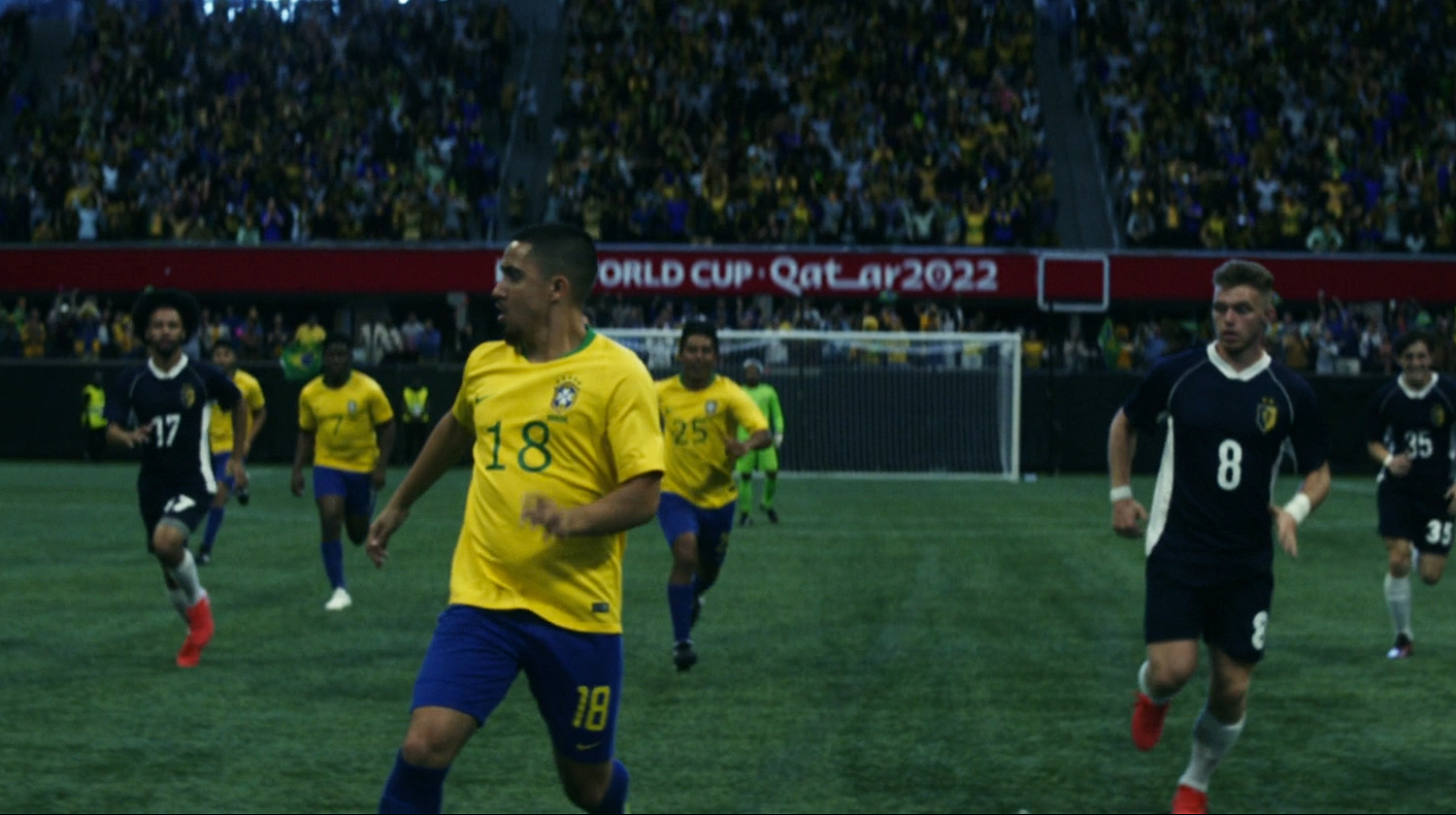
Minor grumbles aside, the film does get into the action pretty quickly — in under eight minutes, in fact. However, to accomplish this, the movie skims over one or two pretty major plot points in a blink and you'll miss the summary montage. First, we learn that soldiers were recruited before the situation became so dire that civilians were needed. Still, it seems that the world's armed forces weren't able to defeat the alien invaders. We also learn why December 2022 was chosen as the point to return to.
It could be said that the whole world was watching the tournament final on television, so the message could effectively be transmitted around the globe. But then why not wait another eight years or so, when weapons technology might be just that little bit more advanced? And what about bringing military hardware to the future? Squadrons of ground support aircraft like A10s or even tanks?
One significant issue with time travel that's guaranteed to be ignored in every movie or TV show that incorporates it is that the planet Earth moves through space. Take "Back to the Future" for example, Marty McFly travels from the car park of Twin Pines Mall on Oct. 26, 1985 to the Peabody farm on Nov. 5, 1955, in essence the same location. But he traveled in time — not in space — so the fact that the dates are different means that the Earth was in a different place in its orbit. To all intents and purposes, Marty should have appeared in the middle of space, simultaneously freezing and suffocating and destined to continue traveling through the cosmos by way of inertia for all eternity because Southern California was 16 million miles (26 million kilometers) further around the sun.
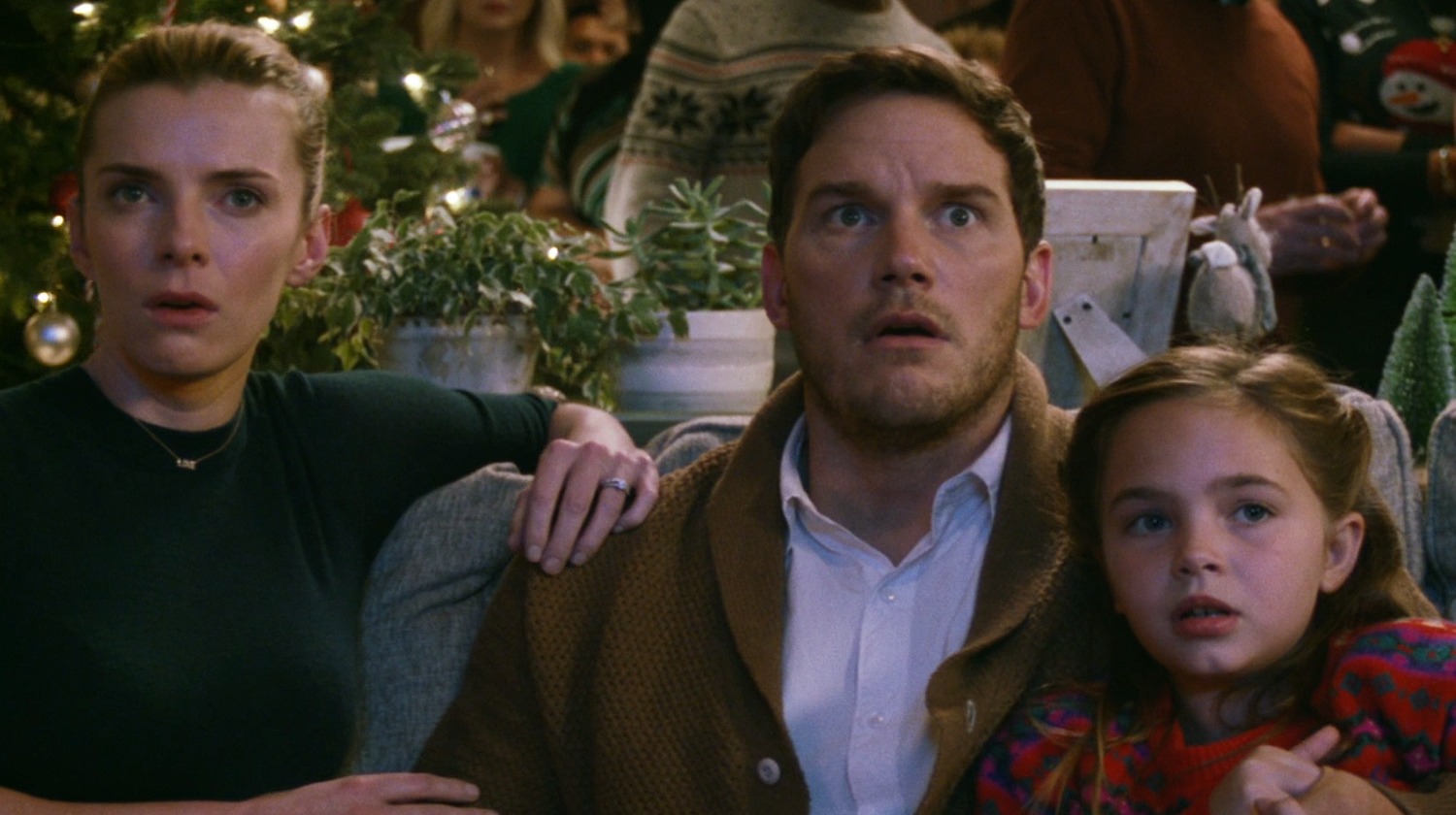
Incorporating this fact could have meant colossal kudos being heaped upon this movie, but sadly, it was not to be.
We learn that to "qualify" to be sent 29 years into the future, you must have died, at some point in the future, before 2051, to prevent a paradox. This is a nice touch and if you've ever seen the not-terrible late-80s sci-fi thriller, "Millennium," starring Kris Kristofferson and Cheryl Ladd, then you know how bad a paradox can be for just about everyone.
The legendary J.K. Simmons appears as James Forester, Pratt's father, but sadly his primary purpose is to provide exposition and set up and a predictable reconciliation later in the picture. Jasmine Mathews plays Lt. Hart, the soldier so prominent in the trailer who actually announces to the world that it faces imminent annihilation. Sadly though, after her memorable arrival, we hardly see anything of her, definitely a missed opportunity there.
The team deploys and is immediately met with disaster as instead of falling just 10 feet (3 meters) or so to the ground when they emerge through time, they are mostly plummeting to their death from what appears to be hundreds of feet up. Thankfully, there's a swimming pool, so everyone with a speaking role so far in the movie makes it more or less unscathed.
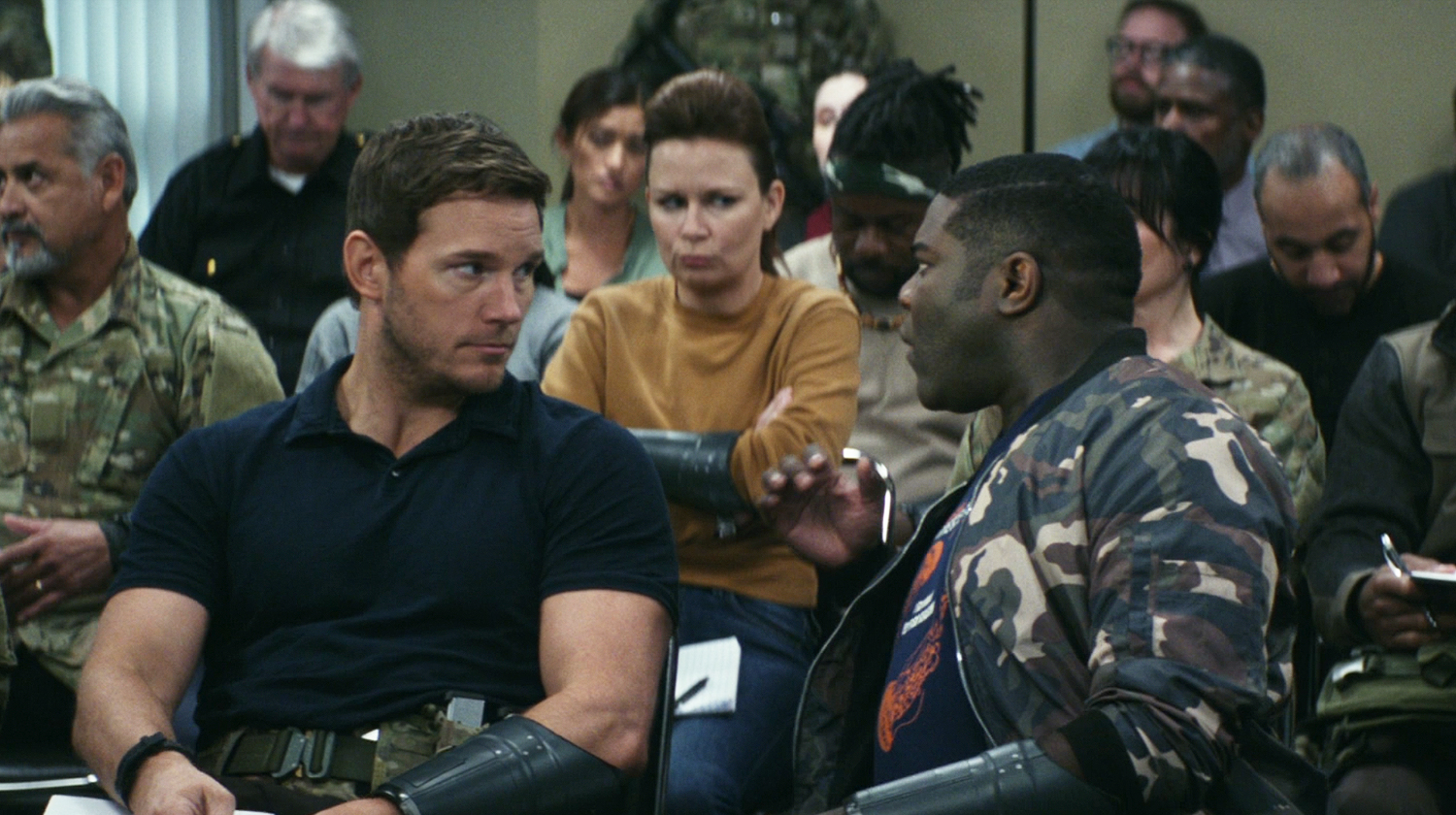
What follows is almost a tribute to many sci-fi films of the past as familiarities, either in story set pieces or even production design, crop up on a regular basis. Even the nasty aliens, called "white spikes" have unquestionably been influenced by the "mimics" of "Edge of Tomorrow" although thankfully there's only a passing resemblance and not a direct lift like we saw in with the "fear demon" in "Star Trek: Discovery" Season 3.
Director Chris McKay said in an interview as part of the movie's promotion, "Obviously, there's a couple of high watermarks as far as alien designs, it's whether it's the Xenomorphian alien, or whether it's the Predator, but then there's everything else. It's trying not to get close to that, but also trying to find something that serves the purpose of the film and was memorable and on its face horrifying."
Throughout the movie, there are subtle and not-so-subtle references to "Starship Troopers," "The Thing," "Edge of Tomorrow" and even "World War Z."
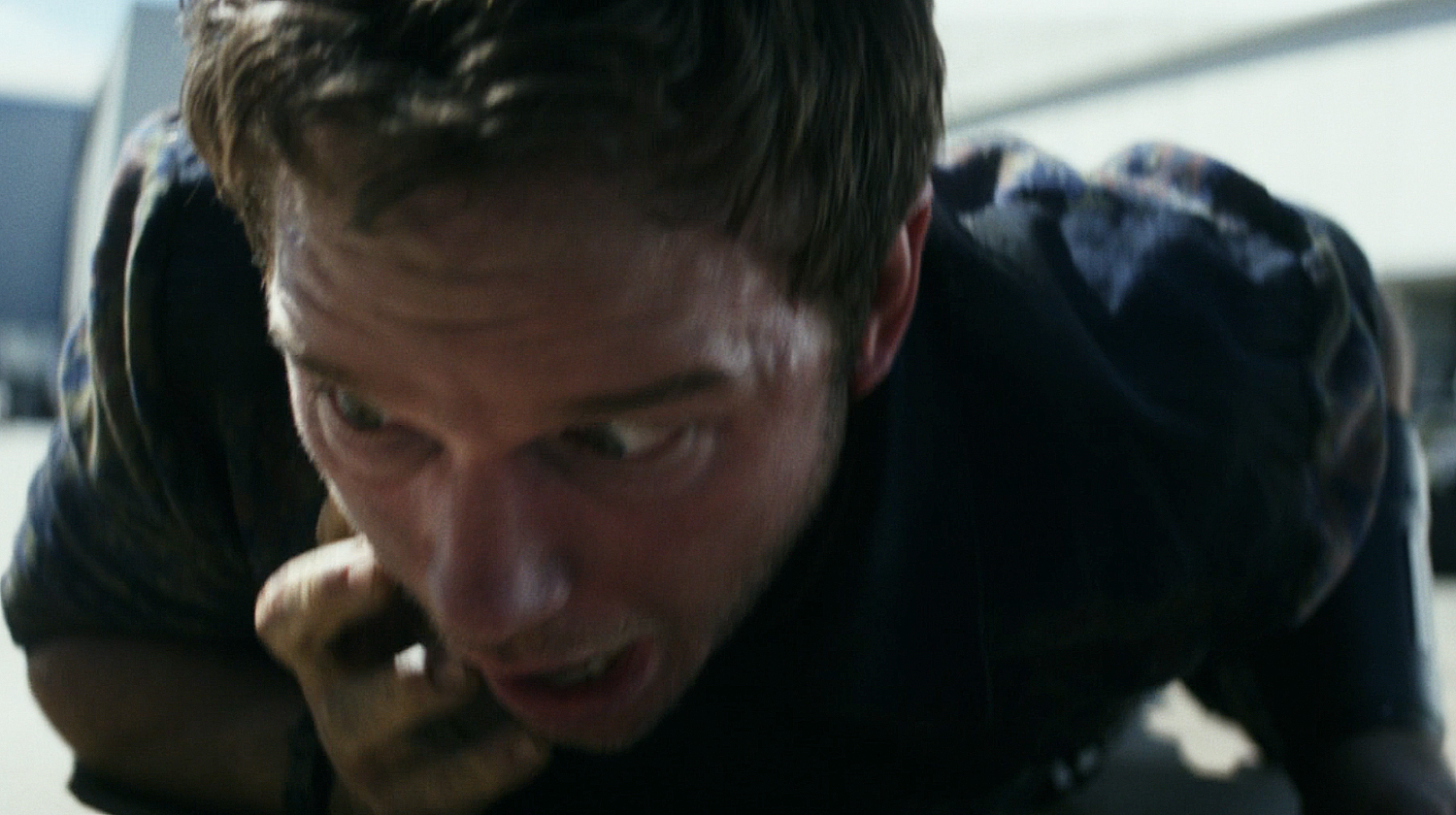
Since each civilian is effectively dead anyway, some characters — and in particular Edwin Hodge's character, Dorian — give absolutely everything to the fight. Perhaps this was an intentional philosophical commentary on the mindset of anyone who's faced combat, or perhaps this was simply incorporated to give his character an excuse to be particularly efficient in exterminating those pesky extraterrestrial invaders.
Along the way, some reasonably predictable twists are revealed, which we're pretty sure that allowing the characters themselves to hear about would actually cause a paradox in and of itself. Plus, some father-daughter parental issues are thrown into the mix, although thankfully, it's not on the same, ridiculous, off-the-chart scale as "Interstellar."
The action switches in the second act to a seemingly impenetrable fortress at sea, protected by not one. It has two defensive perimeters, plus minefields and air cover, but still falls. It seems no one in the future was able to predict how these creatures could overwhelm such a facility, which is a shame as it seems fairly obvious. And then, just as all seems lost and the way back to 2053 is destroyed, the final act of the movie starts with a twist that's equally as absurd as the "they've always been here" slant on Steven Spielberg's "War of the Worlds."
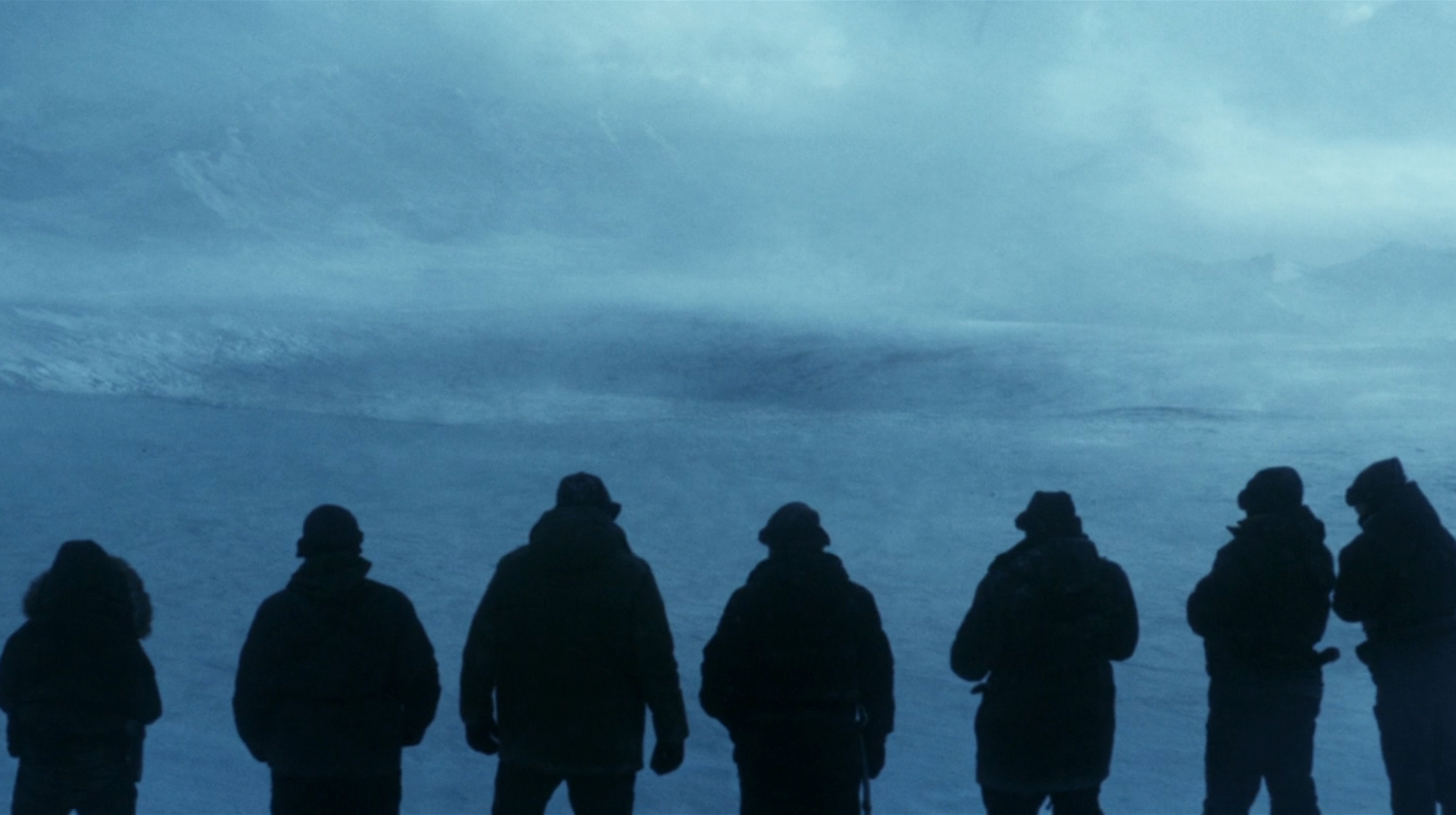
Had Pratt's character seen "Frequency" or at the very least "Bill & Ted's Excellent Adventure" he might have been able to come up with at least one other alternative plan of action. Sadly, the whole final act feels rushed and tacked on. The dialogue is kept to exposition only, the tone of the film has completely changed and is suddenly incorporating more comedy and of course we have the "hooray-for-science" element thrown in for good measure. There's even a climate change message that feels like it's been hastily stuck on with Scotch Tape.
The casting choices are solid and along with those we've already mentioned is Yvonne Strahovski, who has a really strong Adrianne Palicki vibe going. However, these talented actors aren't given a lot to work with and so we never really become fully invested in what happens to them.
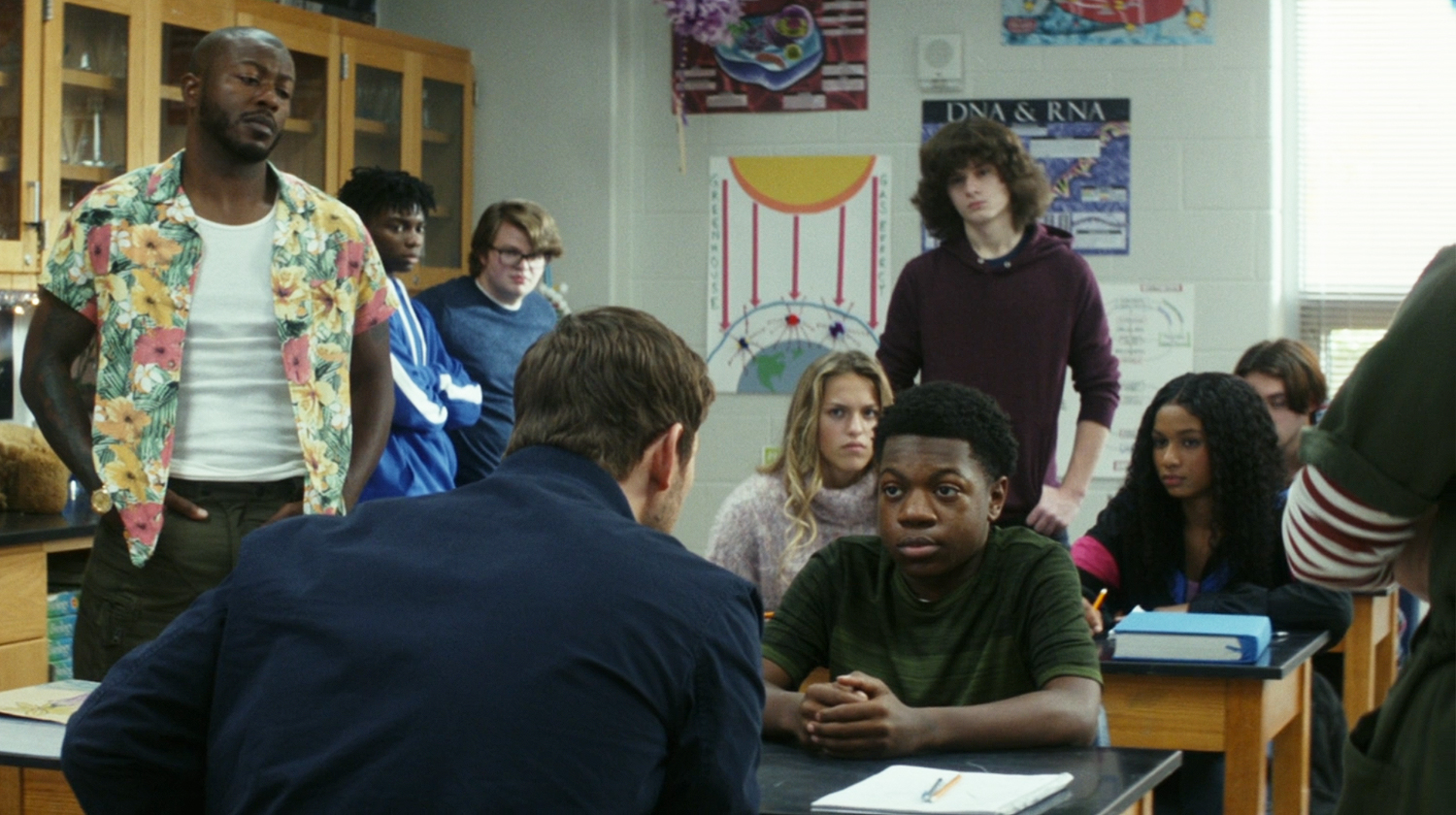
It's an usually long offering for a popcorn flick at 2 hours and 18 minutes and it starts off well, but before long it begins to descend into absurdity and once you're past the halfway point it becomes a little bit of a struggle. Sure, you want to know what happens, but you're probably not going to bother pressing pause when you go to the refrigerator to get another can of beer.
Watching "The Tomorrow War" reminds me of my first "screenplay" I wrote in the sixth grade where I basically ripped off every scene and set piece from my favorite sci-fi movies and TV shows and combined everything. The characters fought off huge walking machines on an ice planet, then there was a big battle in space with a giant fighting robot made up of three spaceships that connected together, before finally crash landing on a barren, desert planet where apes were the dominant civilization. I seriously doubt any studio executive would've even read past the first page, but now I'm beginning to wonder if I still have that lying about somewhere.
Follow Scott Snowden on Twitter. Follow us on Twitter @Spacedotcom and on Facebook.
Join our Space Forums to keep talking space on the latest missions, night sky and more! And if you have a news tip, correction or comment, let us know at: community@space.com.
When Scott's application to the NASA astronaut training program was turned down, he was naturally upset...as any 6-year-old boy would be. He chose instead to write as much as he possibly could about science, technology and space exploration. He graduated from The University of Coventry and received his training on Fleet Street in London. He still hopes to be the first journalist in space.








